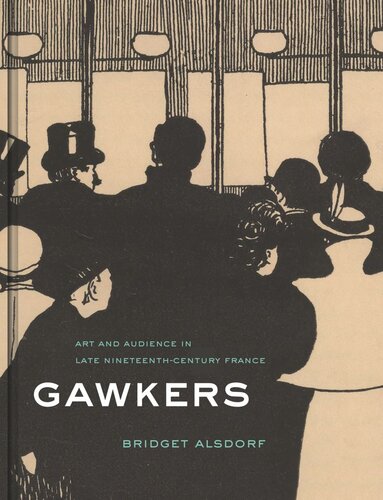

Most ebook files are in PDF format, so you can easily read them using various software such as Foxit Reader or directly on the Google Chrome browser.
Some ebook files are released by publishers in other formats such as .awz, .mobi, .epub, .fb2, etc. You may need to install specific software to read these formats on mobile/PC, such as Calibre.
Please read the tutorial at this link: https://ebookbell.com/faq
We offer FREE conversion to the popular formats you request; however, this may take some time. Therefore, right after payment, please email us, and we will try to provide the service as quickly as possible.
For some exceptional file formats or broken links (if any), please refrain from opening any disputes. Instead, email us first, and we will try to assist within a maximum of 6 hours.
EbookBell Team

4.0
96 reviewsHow the urban spectator became the archetypal modern viewer and a central subject in late nineteenth-century French art
Gawkers explores how artists and writers in late nineteenth-century Paris represented the seductions, horrors, and banalities of street life through the eyes of curious viewers known as badauds. In contrast to the singular and aloof bourgeois flâneur, badauds were passive, collective, instinctive, and highly impressionable. Above all, they were visual, captivated by the sights of everyday life. Beautifully illustrated and drawing on a wealth of new research, Gawkers excavates badauds as a subject of deep significance in late nineteenth-century French culture, as a motif in works of art, and as a conflicted model of the modern viewer.
Bridget Alsdorf examines the work of painters, printmakers, and filmmakers who made badauds their artistic subject, including Félix Vallotton, Pierre Bonnard, Henri de Toulouse-Lautrec, Honoré Daumier, Edgar Degas, Jean-Léon Gérôme, Eugène Carrière, Charles Angrand, and Auguste and Louise Lumière. From morally and intellectually empty to sensitive, empathetic, and humane, the gawkers these artists portrayed cut across social categories. They invite the viewer’s identification, even as they appear to threaten social responsibility and the integrity of art.
Delving into the ubiquity of a figure that has largely eluded attention, idling on the margins of culture and current events, Gawkers traces the emergence of social and aesthetic problems that are still with us today.